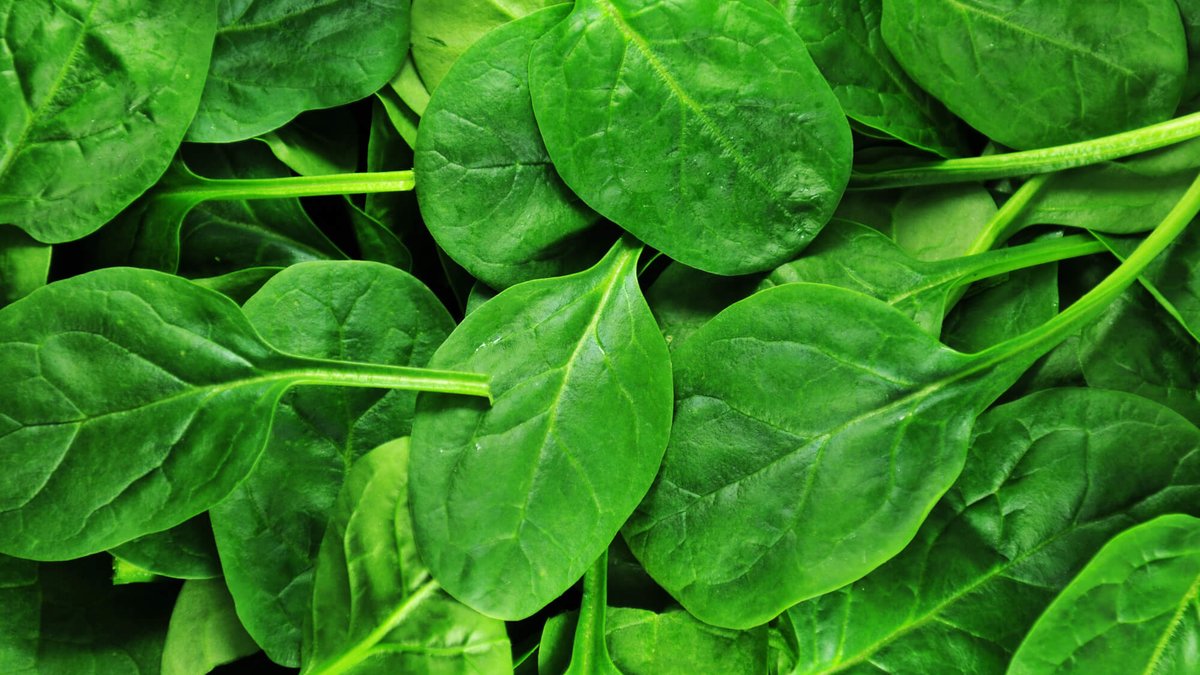
22nd May 2022
Why Spinach good for you
Spinach (Spinacia oleracea) is one of incredible green-leafy vegetable often recognized as one of the functional foods for its health benefiting nutritional, antioxidants and anti-cancer composition. Its tender, crispy, dark-green leaves are one of the favorite ingredients of chefs all around the world.
Botanically, it belongs to the Amaranthaceae family, and its scientific name: Spinacia oleracea.
Spinacia plant grows to about 1 foot in height. Although it can be grown year round, its fresh greens are best available soon after the winter season from March through May in the Northern Hemisphere, and from September until November in the South of the equator.
At least, two varieties of spinach are cultivated for their edible leaves; Savoy type with dark-green crinkle (wrinkled) leaves and flat-leaf variety with smooth surfaced leaves.
Health Benefits of Spinach
- Spinach is storehouse for many phytonutrients that have health promotional and disease prevention properties.
- It is very low in calories and fats (100 g of raw leaves provide just 23 calories). Also, its leaves hold a good amount of soluble dietary fiber; no wonder why this leafy greens often recommended by dieticians in the cholesterol controlling and weight reduction programs!
- Fresh 100 g of spinach contains about 25% of daily intake of iron, one of the highest for any green leafy vegetables. Iron is an essential trace element required by the human body for red blood cell production and as a co-factor for an oxidation-reduction enzyme, cytochrome oxidase during the cellular metabolism.
- Fresh leaves are a rich source of several vital antioxidant vitamins like vitamin-A, vitamin-C, and flavonoid polyphenolic antioxidants such as lutein, zeaxanthin, and β-carotene. Together, these compounds help act as protective scavengers against oxygen-derived free radicals and reactive oxygen species (ROS) that play a healing role in aging and various disease processes.
- Zeaxanthin, an important dietary carotenoid, is selectively absorbed into the retinal macula lutea in the eyes where it thought to provide antioxidant and protective UV light-filtering functions. It thus helps protect from "age-related macular related macular disease" (ARMD), especially in the older adults.
- Further, vitamin-A is required for maintaining healthy mucosa and skin and is essential for night vision. Consumption of natural vegetables and fruits rich in vitamin-A and flavonoids are also known to help the body protect from lung and oral cavity cancers.
- Spinach leaves are an excellent source of vitamin-K. 100 g of fresh greens provides 402% of daily vitamin-K requirements. Vitamin-K plays a vital role in strengthening the bone mass by promoting osteoblastic activity in the bones. Additionally, it also has an established role in patients with Alzheimer's disease by limiting neuronal damage in the brain.
- This green leafy vegetable also contains good amounts of many B-complex vitamins such as vitamin-B6 (pyridoxine), thiamin (vitamin B-1), riboflavin, folates, and niacin. Folates help prevent neural tube defects in the newborns.
- 100 g of farm fresh spinach has 47% of daily recommended levels of vitamin-C. Vitamin-C is a powerful antioxidant, which helps the body develop resistance against infectious agents and scavenge harmful oxygen-free radicals.
- Its leaves also contain a good amount of minerals like potassium, manganese, magnesium, copper and zinc. Potassium is an important component of cell and body fluids that helps controlling heart rate and blood pressure. The human body uses manganese and copper as a co-factor for the antioxidant enzyme, superoxide dismutase. Copper is also required for the production of red blood cells. Zinc is a co-factor for many enzymes that regulate growth and development, digestion and nucleic acid synthesis.
- It is also a small source of omega-3 fatty acids.
Regular consumption of spinach in the diet helps prevent osteoporosis (weakness of bones), iron-deficiency anemia. Moreover, its soft leaves are believed to protect the human body from cardiovascular diseases and cancers of colon and prostate.
TO RECEIVE NEWS NOTIFICATIONS And Covid NEWS VIA WHATS APP PLEASE SAVE OUR NUMBER AND SEND US A MESSAGE AT 7584896261 AND WE WILL ADD YOU TO OUR LIST


